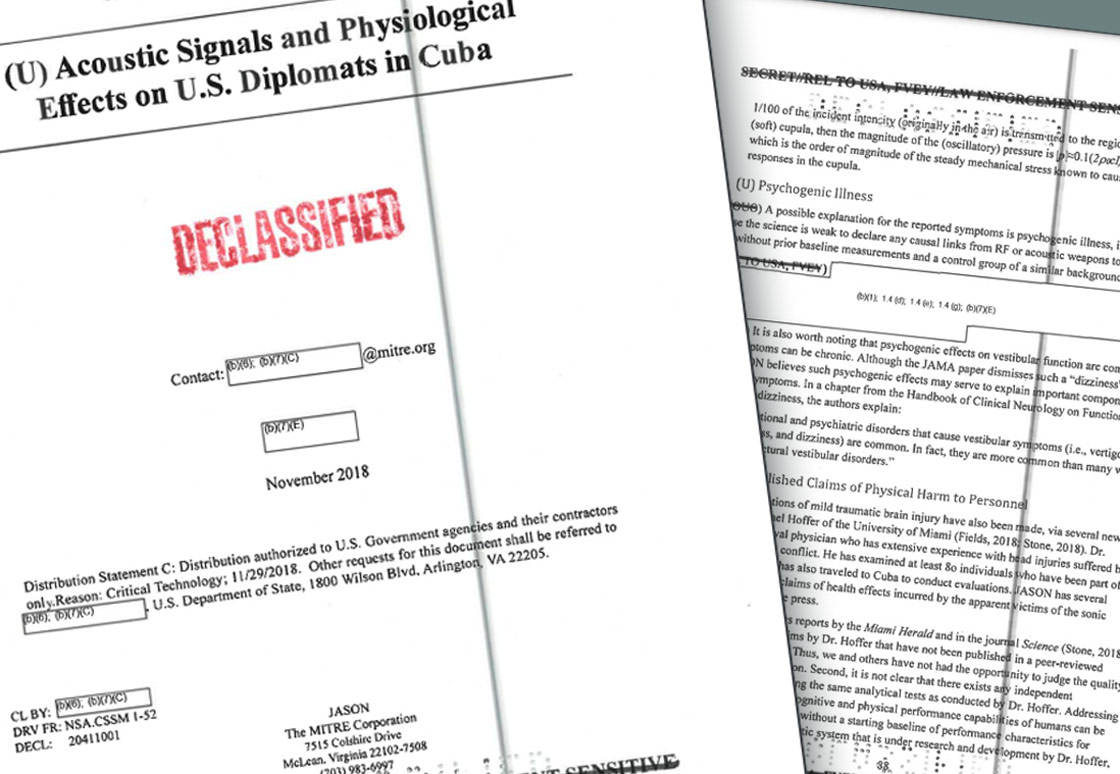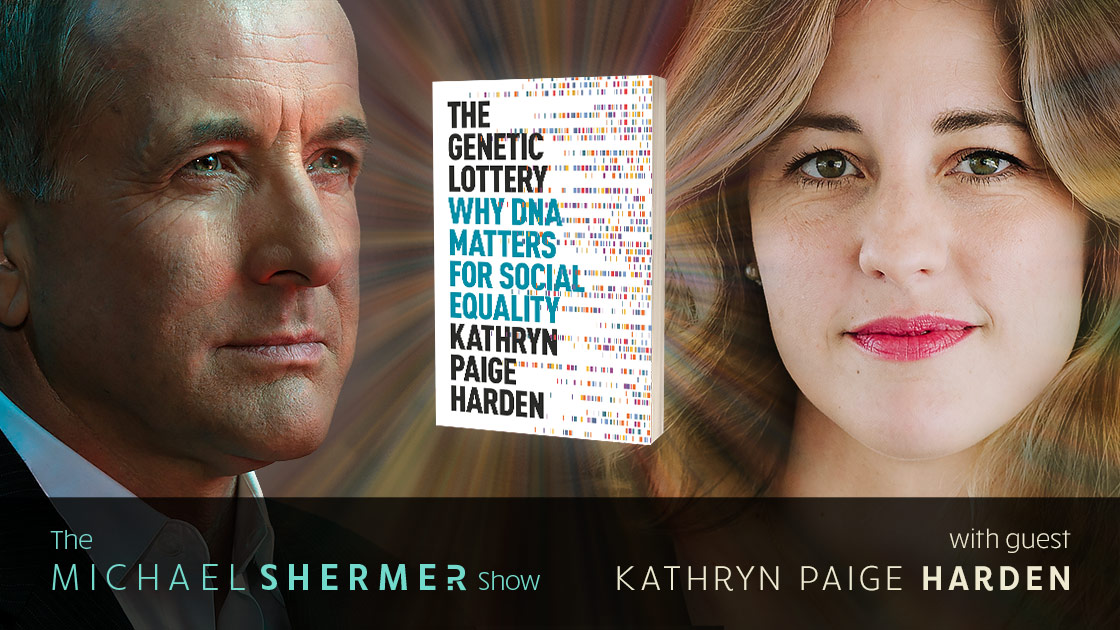EPISODE # 216
Kathryn Paige Harden — The Genetic Lottery: Why DNA Matters for Social Equality
In recent years, scientists have shown that DNA makes us different, in our personalities and in our health — and in ways that matter for educational and economic success in our current society.
Michael speaks with University of Texas (Austin) professor of clinical psychology and Director of the Developmental Behavior Genetics Lab, Kathryn Paige Harden, about her book, The Genetic Lottery. Harden introduces us to the latest genetic science, dismantling dangerous ideas about racial superiority and challenging us to grapple with what equality really means in a world where people are born different. Weaving together personal stories with scientific evidence, Harden shows why our refusal to recognize the power of DNA perpetuates the myth of meritocracy, and argues that we must acknowledge the role of genetic luck if we are ever to create a fair society.
Reclaiming genetic science from the legacy of eugenics, this groundbreaking book offers a bold new vision of society where everyone thrives, regardless of how one fares in the genetic lottery.
If you enjoy the podcast, please show your support by making a $5 or $10 monthly donation.

Have foreign agents been committing nefarious deeds, targeting dozens of American and Canadian diplomats and their families with an energy weapon, or is Havana Syndrome a social panic aided by sensational journalism, dubious science, and social media conspiracy theories? The contents of a U.S. Government investigation into “Havana Syndrome” released under the Freedom of Information Act, concluded that mass psychogenic illness likely played a major role.
This story is a good example of what can happen when politics is mixed with science.
Above left: Cover page of the newly declassified State Department report which concluded that the Frey Effect was “highly unlikely.” The opposite conclusion was reached by the National Academy of Sciences panel. While one report was kept secret, the NAS findings were publicly released, raising questions. Above right: Page 93 of the secret JASON report which touted mass hysteria as a possible cause of ‘Havana Syndrome.’ The State Department publicly downplayed the idea while promoting the notion of microwaves – something that the report said was “highly unlikely.”
Havana Syndrome Hysteria and the Great Wild Goose Chase
Classified documents reveal skepticism of foreign actors & bolster the role of psychogenic illness
The Biden administration’s probe into the origins of “Havana Syndrome” has been left reeling after the unexpected departure of the woman leading the investigation after serving in her role for just six months. Havana Syndrome was first reported in Havana, Cuba in late 2016. Over the next two years dozens of American and Canadian diplomats and their families reported complaints ranging from headaches, dizziness, nausea, and fatigue, to confusion, difficulty concentrating, insomnia, and ear pain. While it continues to be widely reported that many of the victims have been diagnosed with brain damage and hearing loss, based on the studies that have been conducted to date, there is no definitive evidence to support such claims — or that attacks took place.1 On September 22nd the State Department announced that Pamela Spratlen was stepping down after a teleconference with victims who were left incensed when she refused to rule out the possibility that the symptoms were caused by mass psychogenic illness. The question was prompted by media reports that a yet to be released FBI investigation concluded that the diplomats were the victims of mass suggestion.2
The Hysteria Over Hysteria
The hostile reaction to the possibility that psychogenic illness may play a role highlights the stigma that surrounds this condition, which is widely misunderstood by the public and among many in the scientific community. Within hours of Pamela Spratlen’s resignation, an ex-CIA officer who claims to have been the victim of a 2017 “attack” in Moscow, Marc Polymeropoulos, said that Spratlen’s failure to rule out “mass hysteria” was “automatically disqualifying” as the task force leader and “insulting to victims.”3 One of the diplomats on the call complained that Spratlen was “very clearly saying that she has not ruled out that we’re crazy.”4
Such misconceptions are common and reflect widespread ignorance on the subject. Mass psychogenic illness is not a mental disorder; it is a collective stress response that evokes real symptoms. It is a well-documented condition that involves the converting of psychological stress into symptoms that have no organic basis. It is not a hypothetical concept; it is an established condition in the fields of psychiatry and medicine. Several diplomats who exhibited symptoms of “Havana Syndrome” only to be told later that they were likely suffering from stress, have criticized the government for not taking their claims seriously. They point out that the Biden administration has stopped referring to what happened as “attacks,” but rather “unexplained health incidents” or UHIs.5
In recent months there has been a flurry of alarming news headlines about “directed energy attacks” on American officials in over a dozen countries involving nearly 200 people.6 It is often implied that the sheer number of reports is confirmation that something nefarious must be afoot. What is rarely mentioned is the context of the outbreak: the global explosion in cases coincides with a State Department directive to U.S. diplomats and intelligence officers to be on alert for “anomalous health incidents” (AHIs) that may or may not be accompanied by strange sounds. […]
LAST DAY TO GET THIS AMAZING DEAL!
4 issues today + 3 issues later for only $14.99
Don’t miss this amazing opportunity to get an annual digital subscription PLUS our 3 most recent back issues, all for only $14.99 at pocketmags.com. New digital subscribers can instantly download the current issue 26.3 (UFOs & UAPs) as well as back issues 26.2 (DRUG TRIPS & REALITY), 26.1 (COSMIC BEGINNING), and 25.4 (QANON). Then, you will automatically receive issues 26.4 (in December 2021), 27.1 (in March 2022), and 27.2 (in June 2022).
Sale runs through October 9, 2021 only at PocketMags.com. Your digital subscription can be synchronized to your favourite Apple or Android device(s), or read on your PC or Mac. *After your first year, your subscription will automatically renew at the full standard annual price, unless cancelled.











